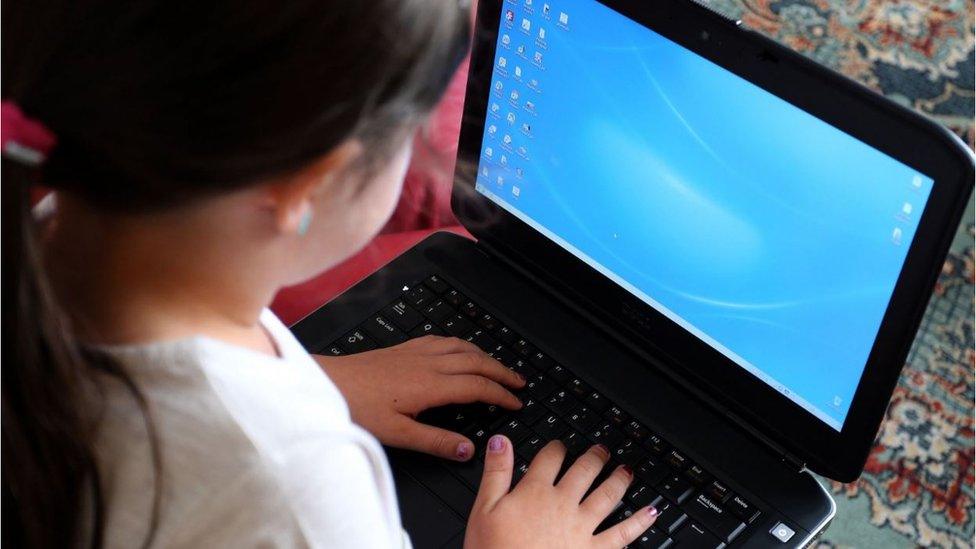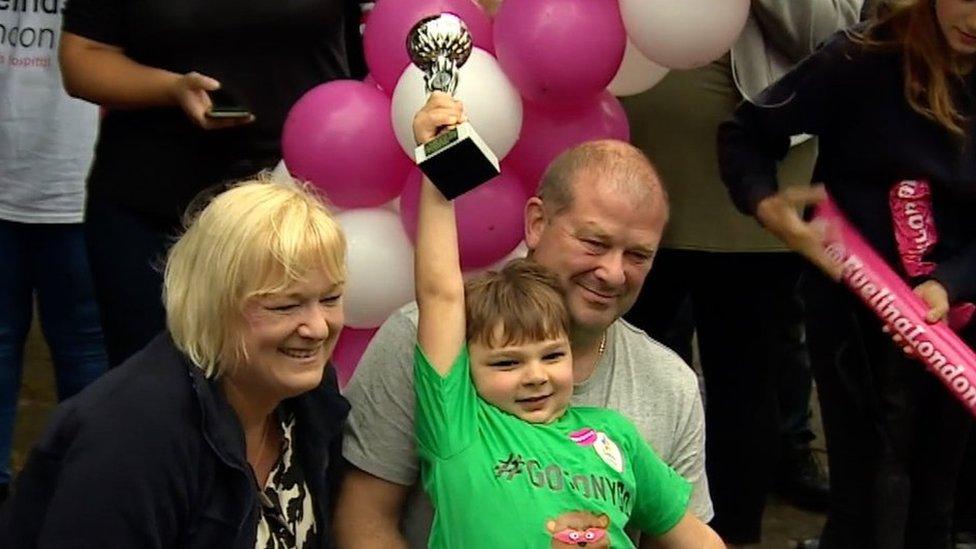Yorkshire sees big rise in child abuse image offences - report
- Published

Figures show West Yorkshire Police saw a rise of in reported child abuse image offences of 898 during five years, the NSPCC said
Child abuse image offences recorded by police in Yorkshire and the Humber region have risen by 57% in five years, the NSPCC has said.
Figures show the region's forces recorded 3,614 child abuse image offences in 2021-2022, compared with 2,303 in 2016-2017.
West Yorkshire saw the biggest rise in reported offences, with an increase of 898 during the time period.
The child protection charity warned child abuse had become "normalised".
It has urged the government to create a child safety advocate through the Online Safety Bill.
A Freedom of Information request (FOI) by the charity showed child abuse image offences across the UK jumped by 66% during the five year period, with more than 30,000 crimes involving the sharing and possession of indecent images of children recorded last year.
The charity's figures showed all police forces in the Yorkshire and Humber region had seen a rise in the number of offences reported.

South Yorkshire Police recorded a total of 5,300 child abuse image offences between 2016 and 2022, a Freedom of Information request by the NSPCC has shown
A spokesperson for the NSPCC said unregulated social media was "fuelling the unprecedented scale of online child sexual abuse".
The NSPCC said research showed Snapchat was the social media site offenders most used to share child abuse images. The app was used in 43% of instances where platform data was provided by police, the charity said.
Facebook, Instagram and WhatsApp were used in 33% of instances where a site was flagged, it added.
Sir Peter Wanless, Chief Executive of the NSPCC, called the new figures "incredibly alarming. He said they reflected "just the tip of the iceberg" of what children were experiencing online.
"We hear from young people who feel powerless and let down as online sexual abuse risks becoming normalised for a generation of children."
Sir Peter said: "By creating a child safety advocate that stands up for children and families the Government can ensure the Online Safety Bill systemically prevents abuse.
"It would be inexcusable if in five years' time we are still playing catch-up to pervasive abuse that has been allowed to proliferate on social media," he added.

Follow BBC Yorkshire on Facebook, external, Twitter, external and Instagram, external. Send your story ideas to yorkslincs.news@bbc.co.uk, external.
- Published27 January 2023

- Published10 June 2022
